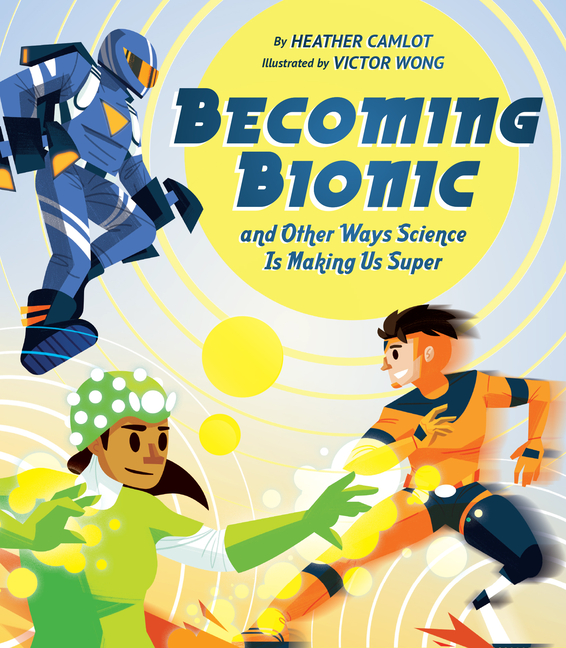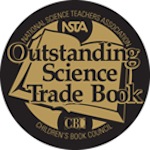Becoming Bionic and Other Ways Science Is Making Us Super
by Heather Camlot and Victor Wong
"Who hasn't wished for a superpower? Maybe it's to be able to regenerate like Wolverine,... read more
15 Total Resources 2 Awards 6 State Lists Book Resume View Text Complexity Discover Like Books
- Grade
- 5-8
- Genre
- Nonfiction
Year Published 2023
- Text Complexity
- Lexile Level: 1130L
- ATOS Reading Level: Currently Not Available
- OverDrive Digital Book Details Explore on Marketplace
- Curricular Area
- English Language Arts
- Science
- STEAM
- Subject Headings
- Inventions--Juvenile literature
- Human body and technology--Juvenile literature
- Inventions
- Science--Juvenile literature
- Technological innovations--Juvenile literature
- Human body and technology--History--Juvenile literature
- Science
- Technological innovations
- Human body and technology
- Human body and technology--Moral and ethical aspects--Juvenile literature
Our Original Resources 5
Audio Name Pronunciation with Heather Camlot
Created by TeachingBooks
Nonfiction Read and Respond Multi-Leveled Lesson
Created by TeachingBooks
Vocabulary Graphic Organizers
Created by TeachingBooks
Comprehension Graphic Organizers
Created by TeachingBooks
Submit Qualitative Text Complexity Rubric
Created by TeachingBooks
Book Guides, Activities & Lessons 3
Nonfiction Read and Respond Multi-Leveled Lesson
Created by TeachingBooks
Comprehension Graphic Organizers
Created by TeachingBooks
Discussion and Activity Guide from Owl Kids
Created by Owl Kids
Vocabulary Resources 1
Vocabulary Graphic Organizers
Created by TeachingBooks
Awards & Distinctions 2
If you find a 3rd party resource that isn't accessible to you, please email the name and link of the resource, as well as any details about your needs, to accounts@TeachingBooks.net.
Images courtesy of publishers, organizations, and sometimes their X (formerly Twitter) handles.







